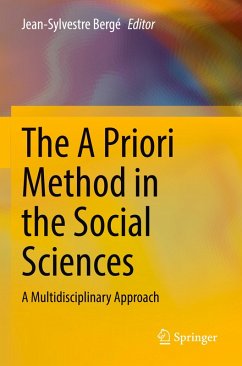This edited volume takes a multidisciplinary look at the philosophical concept of a priori. Placing social sciences at the heart of the discussion, this book establishes a dialogue between various disciplines and the different postulates, presuppositions, prejudices, paradigms, beliefs, commonplaces, biases or emotions that forge their theoretical and practical constructs.
The book is divided into three parts. Chapters in Part I lay the foundations of a new antecedent approach that revisits the classical approach to a priori and its relationships with law and philosophy. Chapters in Part II extend the analysis to economics and management, on such key topics as blockchain technology, labor, health insurance and innovation. Finally, chapters in Part III turn to anthropology and sociology, to reconsider the core methods of these different disciplines and to nourish reflection on the basis of new working hypotheses.
The book is divided into three parts. Chapters in Part I lay the foundations of a new antecedent approach that revisits the classical approach to a priori and its relationships with law and philosophy. Chapters in Part II extend the analysis to economics and management, on such key topics as blockchain technology, labor, health insurance and innovation. Finally, chapters in Part III turn to anthropology and sociology, to reconsider the core methods of these different disciplines and to nourish reflection on the basis of new working hypotheses.








